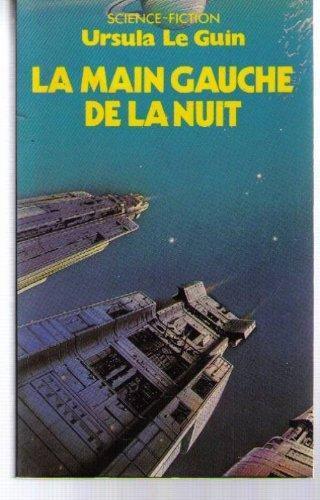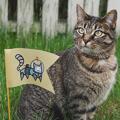Sòlida ciència ficció que no deixa fred (badumtss)
No rating
El títol és una conya perquè la novel·la transcorre en el planeta Hivern, que té temperatures significativament més baixes que les de la Terra.
I Le Guin posa força llenya a l'estufa (prometo parar!): no només hi ha la construcció de com seria la vida en un món així de fred amb una biosfera particular, i on la humanitat va arribar fa milers d'anys des de l'espai en condicions gens clares. El nivell tecnològic seria com és ara l’actual, adaptat al planeta.
Un altre gran tema és que lis habitants d’aquest planeta passen la major part del temps en un estat andrògin, des del que poden manifestar qualsevol dels dos sexes biològics quan entren en zel. Al principi em preocupava trobar-me amb essencialismes de gènere, però en tot cas són el punt de vista incomplert d’un dels protagonistes, que anirà canviant. I com afecta la particularitat biològica de la població …
El títol és una conya perquè la novel·la transcorre en el planeta Hivern, que té temperatures significativament més baixes que les de la Terra.
I Le Guin posa força llenya a l'estufa (prometo parar!): no només hi ha la construcció de com seria la vida en un món així de fred amb una biosfera particular, i on la humanitat va arribar fa milers d'anys des de l'espai en condicions gens clares. El nivell tecnològic seria com és ara l’actual, adaptat al planeta.
Un altre gran tema és que lis habitants d’aquest planeta passen la major part del temps en un estat andrògin, des del que poden manifestar qualsevol dels dos sexes biològics quan entren en zel. Al principi em preocupava trobar-me amb essencialismes de gènere, però en tot cas són el punt de vista incomplert d’un dels protagonistes, que anirà canviant. I com afecta la particularitat biològica de la població d’Hivern a la història? Doncs al meu parer de manera molt natural l’allibera de divisions de gènere. En tot cas permet que ens plantegem com moltes de les coses que atribuïm a diferències de gènere són adquirides socialment.
L’altre gran punt, que pesa bastant, és la crítica social i política, i de fet vaig estar a punt de compartir-ne un parell de cites fent duríssima crítica al patriotisme. Es detallen dos països; l’un és una mena de monarquia disfuncional: el llibre mostra com els horrors vénen des d’aquest grup polític priviliegiat que governa sobre un poble que culturalment practica el suport mutu. Kropotkin ens diria que per necessitat, donades les difícils condicions del planeta. No n’escatima la crítica, esclar: és admirable com Le Guin elabora les seves societats incorporant-hi sempre la foscor, seguint línies taoistes que tant li agraden i que van apareixent en el llibre.
Però si un dels països és un garbuix, l’altre és una clara referència a una dictadura socialista. I com ja passava en «els Desposseïts», la crítica és brutal. I és que realment quin tipus de persona voldria viure en una distopia de control social i submissió política?
El recomano molt: tot el que he explicat queda barrejat en les aventures del primer enviat que arriba a Hivern des d’un altre planeta, de forma molt entretinguda... I és difícil no trobar-hi idees en les que aprofundir!





